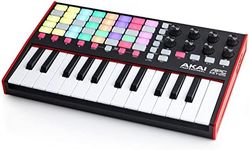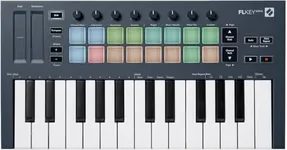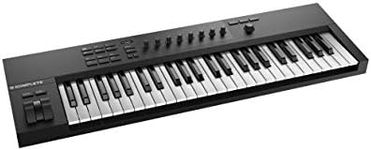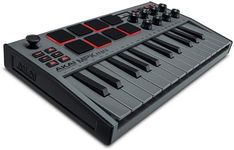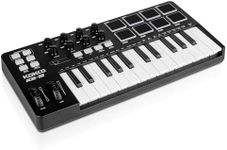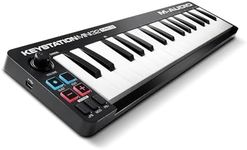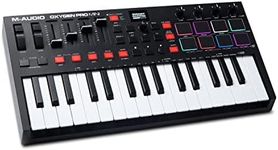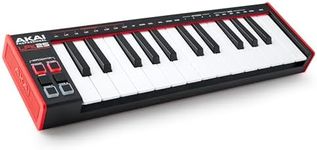Buying Guide for the Best Mini Midi Keyboards
When choosing a mini or midi keyboard, it's important to consider how you plan to use it. Whether you're a beginner looking to learn, a producer needing a portable option, or a professional seeking a versatile tool, understanding the key specifications will help you make the best choice. Here are the key specs to consider and how to navigate them.Number of KeysThe number of keys on a mini or midi keyboard can range from 25 to 88. This spec is important because it determines the range of notes you can play. For beginners or those needing a portable option, 25 to 32 keys might be sufficient. If you're looking to play more complex pieces or need a wider range, consider 49 to 61 keys. Professional musicians or those who want a full piano experience should look at 76 to 88 keys. Your choice should depend on your playing style and the type of music you intend to create.
Key SizeKey size can vary from full-sized keys to mini keys. Full-sized keys are similar to those on a traditional piano and are better for those who are used to playing on a standard keyboard. Mini keys are smaller and can make the keyboard more compact and portable, which is ideal for travel or limited space. If you have larger hands or prefer a traditional feel, full-sized keys are the way to go. If portability is your main concern, mini keys might be more suitable.
Velocity SensitivityVelocity sensitivity refers to how the keyboard responds to the speed and force with which you press the keys. This is important for expressive playing, as it allows for dynamic variation in your music. Keyboards with velocity sensitivity can produce louder sounds when keys are pressed harder and softer sounds when pressed gently. If you are a beginner, this might not be crucial, but for intermediate to advanced players, it can significantly enhance your performance.
AftertouchAftertouch is a feature that allows for additional expression by pressing down on the keys after the initial strike. This can add vibrato, volume changes, or other effects. It's important for those who want to add more expressiveness to their playing. If you are a beginner, you might not need this feature right away, but for more advanced players or those into electronic music production, aftertouch can be a valuable tool.
ConnectivityConnectivity options include USB, MIDI ports, and sometimes Bluetooth. This spec is crucial for integrating the keyboard with other devices like computers, synthesizers, and recording equipment. USB is common and easy to use for connecting to a computer. MIDI ports are essential for connecting to other MIDI-compatible instruments and equipment. Bluetooth can offer wireless convenience. Consider what devices you plan to connect to and choose a keyboard with the appropriate connectivity options.
Pads and ControlsMany mini and midi keyboards come with additional pads and controls such as knobs, sliders, and buttons. These are important for music production as they allow you to control various parameters like volume, effects, and software functions directly from the keyboard. If you are into beat making or electronic music, having pads and controls can be very useful. For traditional playing, these might not be as necessary, but they can still add versatility to your setup.
Build QualityBuild quality refers to the materials and construction of the keyboard. This is important for durability and feel. Higher quality materials and solid construction can make the keyboard more durable and provide a better playing experience. If you plan to travel with your keyboard or use it frequently, investing in a well-built model is advisable. For occasional use or home practice, a less robust build might suffice.
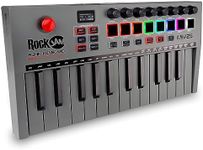
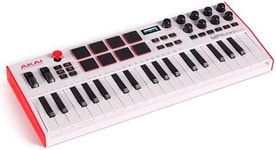
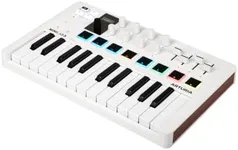
![Novation Launchkey Mini 25 [MK4] —](https://images-proxy.bestreviews.guide/6iOPo2KG1gIYdY5wBMaLi4-uVFI=/0x150/https://m.media-amazon.com/images/I/3172AnEOhbL._AC_CX679_.jpg)


